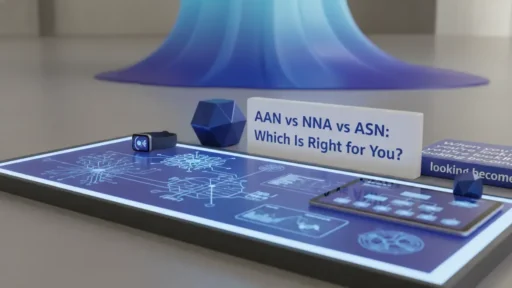The situation of changing the ownership of a vehicle in Illinois appears to be a quite complex one at a first glance but on the contrary, it is not. Honestly, this whole operation is quite simple. One needs to be aware of the entire process either by buying a car or selling an old one. Moreover, this will be conducted in accordance with the Illinois requirements and steps that being a must, will lead to the right undertaking of the process.
Making your way through titling and registration details saves time and nerves. By collecting all the necessary documents, getting acquainted with the payment amount, and understanding the time frame you will be able to cope without much trouble. Therefore, this manual provides not only the tips on transferring of title and registration in Illinois but also clears up any misunderstandings. The people will thus be more propitious to state authorities.
Overview of Title Transfer and Registration in Illinois
There are steps and requirements for the vehicle title and the registration transfer that should be strictly followed, introducing thus the required compliance. The very first step is to prepare the needed papers such as the current title, bill of sale, and a photo of the identification that best identifies the person involved. For a vehicle sale to take place, the rear of the title should be filled in with all the seller’s particulars next to the buyer’s details clearly and legibly. Having done the process, the seller will hand over the title to the buyer.
Buyers should personally visit the local Secretary of State office to make an application for title and registration. It is very important to bring the completed title, the bill of sale, the proof of identity, and the payment for any fees that apply. For vehicle registration, the standard Illinois registration fees differ depending on the type and weight of the vehicle, and an extra amount is charged for out-of-state vehicles. Most of the time, the date for the title transfer and registration process is carried out within 20 days of buying the car. It is also possible to pay the penalty if late, so thereby the process should be completed on time.
Having a good understanding of each stage of the process, starting from the documentation to the amount of filing fees to be paid, greatly contributes to the process and to the lawful transfer.
Importance of Title Transfer
When a vehicle is transferred from one person to another, the new title reflects the new legal and financial owners who are responsible for the vehicle. Proper execution of this process guarantees the new title will be clear and thus prevents future complications.
Legal Ownership
Disputes between the buyer and the seller or miscommunication often happen when the ownership status of a given car is not yet established. Legal documents, such as the title, indicate who are the legal others of the car. Without the ownership of the title, claims and other ownership issues might become a task to solve in the court. The best way to verify the ownership of a vehicle, as per Illinois laws, is through the title, which must be updated with accurate information on every transaction to be conducted. The title should be properly transferred to avoid future complications during the selling process or during a legal inspection.
Avoiding Future Disputes
Avoiding future disputes means avoiding disputes on a proper title. The ceremonious giving of a title makes it unclear, simple and he who the buyer could be and who the seller could be can be extremely wrong, thus peaceful. Making sure all documents are correct and the bill of sale and completed title will be enough for most people to make the ownership visible. Besides, making sure that both parties fill in their own parts in the title will result in no possible fake claims and misrepresentations. By adhering to the regulations of the state and expeditiously transferring the title, car buyers and sellers can stay clear of legal obstacles and preserve their vehicular investment.
Steps to Transfer Title and Registration in Illinois
Getting your vehicle title and registration transferred in Illinois takes a definite number of steps. These steps are not only in accordance with the rules of the state but also grant a safe transaction.
Gather Necessary Documents
Assemble a complete set of required documents before the transfer initiation. The list of documents you need is as follows:
- Current Title: The title that still has to be signed by the owner of the car, the seller.
- Bill of Sale: A legally binding document providing a detailed summary of the transaction with both the buyer’s and seller’s names and the sale price included in it.
- Proof of Identity: Acceptable forms of identification, in this case, are a driving license issued by the state or an ID card.
These papers will make the transition smooth and help in avoiding furtherjurisdictional holdups.
transfer of registration vary depending on vehicle specifications and the chosen speed of the process. To know about extra services, you may call the
local office
.
Additional Information
Once you have completed your transaction in Illinois, feel free to ask the staff at the office for a VSD 190 form. After your visit, any further necessary communications can be conducted by the dealer. ack101.com offers tips and a data-centric driver’s guide in California. Your function will be smoother with the help of ack101.com. Wishing you to select your dealer day wise is the right way. We recommend saving the website as a bookmark and sharing it with your friends who may benefit from the services and products available there.
Concluding Remarks
- Is there a service for the disabled?
- Yes, disabled drivers should consult the local DMV or AB service station.
At the end of the day, the expert’s tone has been on the communicative side of the picture, softening the salient features of the guide. The completed site was a real example of what the theme of your question was about. But was the phrase” at the end of the day” also displayed the choice of an informal style of communication? Would the phrase retain its meaning if removed?
disqualification from acquiring a new title. The specific requirements for an application are available at the “Tax & Title” tab of the Illinois Department of Revenue’s page, www.cyberdriveillinois.com. As a taxpayer, you surely do not wish to be involved in Identity theft. That is why you need to pay your taxes and fees on time. Once unpaid taxes are accumulated, they can spiral out and be a chronic source of headaches for you. Not only to avoid unpleasant breaches with the authorities, make sure never to be a tax delinquent again. Those are just a few of a taxpayer’s responsibilities, which you are supposed to take due care of. Besides, you never know who might be the next victim of cybercriminals exploiting your identity, in which case you will not only experience financial losses but will need to undergo a lengthy process to regain your good name, file police reports, etc.
Lien against the Vehicle Title
A lien on the vehicle’s title is another matter that can render the title transfer process more complicated and stressful than it already is. Whenever a loan is taken out to finance a vehicle and installments are not finished, the borrower immediately defaults, and this gives the creditor the right to reclaim the vehicle. A better understanding of what a lien on a vehicle is and the ways it can be discharged can give a clearer picture of what and where to start. The basic idea is that once you grasp that the car still secured the loan, you either pay off or ask the creditor to agree to give you the release of it. Without this auxiliary, the vehicle cannot be legally sold. A certificate of title without any signs of a lien and in compliance with IDOT’s rules is evidence that you legally own the car and have the right to carry out any action you wish.
Inaccurate Vehicle Information
Inaccurate vehicle information is a seemingly trivial issue that frequently hampers the title transfer process. Inaccuracy may occur, for example, if a seller determines the wrong VIN for any reason, largely due to carelessness. To resolve this, contact the county clerk, who will be very willing to assist by ordering correction of the available wrongly recorded information.
Delays may occur during the process or the transfer may even be rejected. Sellers should accompany the document with the tax payment receipt when they are filling out the title transfer. Buyers, too, must check that the vehicle has no liens, which could be an indication of unpaid taxes or some other obligations. Sorting out these problems in advance can be a good way to smoothen the transfer.
Odometer Disclosure Issues
The odometer disclosure issue is another stumbling block in the title transfer process. Sellers in Illinois must provide true odometer readings to prevent fraud according to the local law. In the event that the odometer section on the title is not complete or is incorrect, the transfer will experience delays. Sellers need to make sure they fill in the section correctly by indicating the originally-registered mileage; additionally, if the vehicle was exempted from the mileage report, this has to be clearly stated. Lastly, the buyers have to see if the odometer reading coincides with the seller’s words and that there are no discrepancies to be dealt with later. A clearly documented odometer also simplifies the ownership changing over process.
Discover the Power of BlueNotary:
Integrate your Business, Title Company, or Law Firm to Satisfy your Customers and Decrease Turnaround
Get a document Notarized/Sign-up
Join the Free Notary Training Facebook Group
Conclusion
Dealing with the process of title and registration transfer in Illinois can still be a not-so-scary task. A good understanding of the mandatory steps and documents can make sure that the transition is smooth. Doing the title transfer properly is the way to confirm the ownership and protect from possible disputes of the future. People who keep themselves updated on necessary fees and requirements can prevent the long wait as well as avoid any complications. To accomplish a flawless transfer of ownership, it is necessary to pay off any taxes that are due and make precise odometer reading entries. These strategies are definitely going to be useful. A person following these steps will find that they save their money and still conform effectively to regulations that govern the State of Illinois.
Frequently Asked Questions
What documents do I need to transfer a vehicle title in Illinois?
The documents that are necessary for the Illinois car title transfer are the current title, a bill of sale, proof of identification, and any other specific documents as per your case.
How much does it cost to transfer a vehicle title in Illinois?
The actual title transfer cost in Illinois is $150. In addition, $151 is the common registration fee for vehicles, and late fees may apply if the transfer is not made on time.
Where do I apply for title and registration in Illinois?
The title and registration application in Illinois is submitted at your local
The vehicle title transfer in Illinois can be done at your local Secretary of State’s office in Illinois . Bring the completed title, bill of sale, proof of identity, and payment for applicable fees.How long does it take to process a vehicle title transfer in Illinois?Normally, a vehicle title transfer takes about 20 days from the time of purchase in Illinois. However, the period may be extended if all the necessary documents have not been completed.What happens if I don’t settle outstanding fees before transferring the title?
In the event that you don’t pay any outstanding fees, you may face delays or even a denial in the title transfer process. Before you start the process, it is obligatory to take care of any financial obligations that you may have as per the advice from professionals available on their website.
Why is accurate odometer disclosure important in Illinois?
Accurate odometer disclosure is necessary to prevent fraud. Sellers have to give correct odometer readings to ensure straightforwardness, as any deviations in statement can result in a delay in the processing of a transaction. Should any mistakes be made in the statement, it could lead to severe legal allegations.
Can I transfer a title for an out-of-state vehicle in Illinois?
Yes, out-of-state vehicles can have titles transferred in Illinois. However, additional fees will need to be paid over and above the vehicle registration charges for the vehicle out of the state of Illinois. You only have to go through the same steps of obtaining the necessary documents, among them settling the fees related to the vehicle’s previous state.
What if I still have questions about the title transfer process?
If you still are with unsolved queries, then it would be much better to speak to Illinois Secretary of State’s office staff or visit their website for the relevant detail about your situation. You can ask for the details to be given in writing and if the official gives it to you in writing it will be best suited for your needs without any second thoughts and write down the questions and concerns that you have and take them to the office of the local official for an in-person or written clarification.







